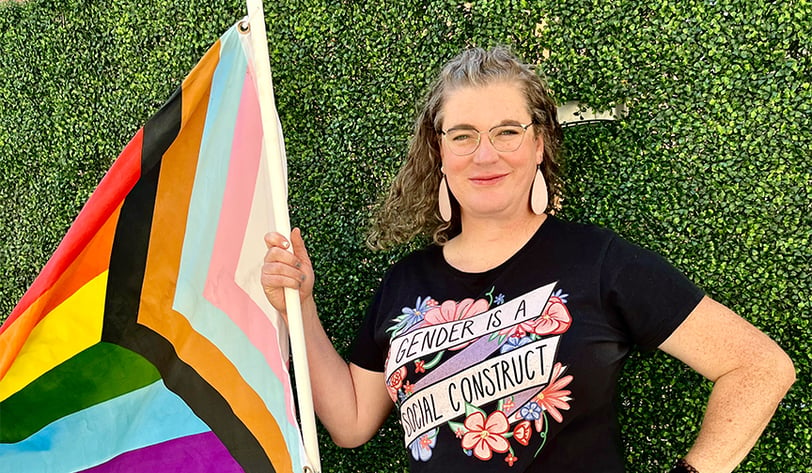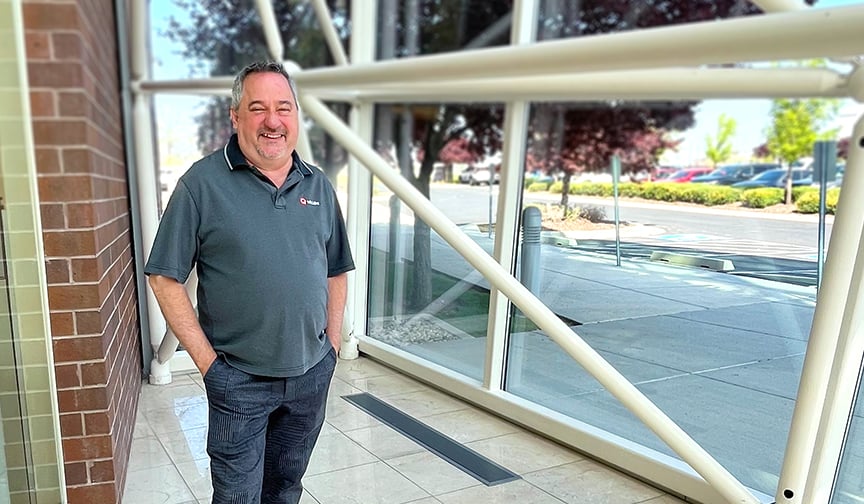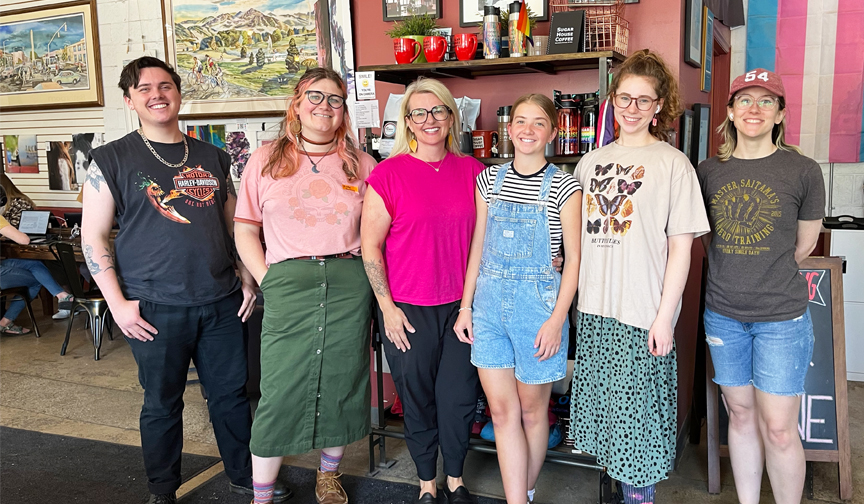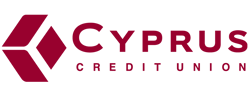How Project Rainbow's Flags Support the LGBTQ+ Community

You may have noticed the increasing number of pride flags adorning the yards and facades of Utah homes and businesses. What you might not know is that thousands of the flags that emerge throughout the year are owned by Project Rainbow, a Salt Lake City–based nonprofit whose reach is expanding thanks to its army of dedicated volunteers.
Project Rainbow is one of over 230 member businesses and organizations in the Utah LGBTQ+ Chamber of Commerce. In partnership with the chamber, Cyprus Credit Union is honored this year to present 12 chamber members with grants of $1,000 each as we recognize their contributions to the community. Project Rainbow was selected as one of the grant recipients.
The creation of Project Rainbow stemmed from founder Lucas Horns’ idea to promote queer visibility and support through the display of rainbow flags. The Salt Lake City native’s vision took shape in 2018, with flags delivered to homes and businesses in a way familiar to many Utahns.
“For American holidays, the [Boy Scouts] are going out and putting up American flags on PVC pipes,” says Jacey Thornton, Executive Director of Project Rainbow. “And Lucas loved that imagery and that power of community coming together. This is in no way a replacement of that, but to celebrate queer holidays, because these aren't federally recognized, national holidays. We call them ‘celebratory holidays.’”
Currently, Project Rainbow stakes rainbow and transgender flags outside the homes of its subscribers or “flag hosts” in the days leading up to four celebratory holidays. For businesses, Project Rainbow is piloting a program to increase the availability of flags throughout the year. But Jacey explains that while there are many who love flying the flags, it may not always be possible for everyone.
“Yes, the flags are great. But there are HOAs, there are roommates, there are all kinds of situations where people can’t use a flag in their yard. So, we’ve got little garden flags. You can put it on your door, as a wreath, inside of windows, and I think it's also for people who don't want a big flag.”
By catering both big and small tokens of support, Project Rainbow believes it serves as a good entry point to both allyship as well as self-acceptance and love—both of which appear to be growing in demand. By the end of 2019, interest and contributions to Project Rainbow had doubled from the previous year.
“It just continued to grow exponentially, to the point that last year during Pride, we had just over 5,000 flags spanning from Logan to Provo. We also go into St. George for their Pride. As it evolved, we started realizing the impact we could have on our community, and we developed a community grant fund.”
With Project Rainbow’s Community Fund, the donations received from flag hosts are distributed as grants to individuals, groups, and organizations who contribute to LGBTQ+ visibility and organize queer-supportive projects and events. Since its inception five years ago, Project Rainbow has awarded more than $250,000 in grants. Of that figure, over $70,000 are from 2023 alone. Now, Jacey says they’ve even had neighboring states ask for assistance.
“We view ourselves very much as a community good,” says Jacey. “This isn't my organization, it's the community’s organization. So, we're always trying to find ways to improve and to reach out to communities who’ve been disenfranchised, even from our marginalized community.”
With LGBTQ+ individuals woven into the various facets of society—be they religious, political, occupational, racial, scholastic, or another—it’s easy to see why Project Rainbow considers itself a community good. Yet there is still plenty of work to be done, says Jacey, citing in particular the notion that queerness and patriotism are incompatible.
“It's not a contrarian view of America. That's one thing that we really want to correct. We're seeing people burning [pride] flags, we're seeing protests where people are chanting ‘USA’ against our flag. But this isn't a duality. I love that I can be out and safe in my community and have federal protections. I’m proud to be an American in that light.”
Project Rainbow itself has seen a notable increase in the theft and vandalism of flags but says law enforcement has had their back.
“If there's any theft or vandalism, it’s no harm, no foul on [the flag host’s] part. But they can report it to the police, and then we take the victim statement and follow it to the end. Police departments have been very helpful to us this year. We’ve accounted for about 29% of losses. In the past, it was about 10%.”
Whether it comes from police, religious leaders, family or friends, Project Rainbow knows that support can make all the difference. As a transgender woman, Jacey recalls how astonished she was by the amount of support she received during her transition. She also recognizes that isn’t the case for all transgender individuals, something she was reminded of after her first time visiting Project Rainbow’s Trans Day of Remembrance Memorial. There, each of the hundreds of transgender flags on display in Salt Lake City’s Washington Square stood in place of a transgender person who had been murdered or died by suicide in the past year.
“It’s so important for us to be visible. I used to want to be stealth and be seen as a cisgender woman, but that’s not my story,” says Jacey. “This is a privilege that I have, to have community and a life. I’ve got to carry that forward.”
With this in mind, and with the invaluable support of her wife and children, Jacey finds purpose and satisfaction in her work at Project Rainbow. She also believes that something as simple as displaying a pride flag can help Utahns connect and show support for one another.
"Ordering a flag from us helps to spread love and promotes the well-being of our Queer community."
To learn more, visit ProjectRainbowUtah.org or find them on Facebook and Instagram (@projectrainbowutah).
You May Also Like
These Related Stories

QSaltLake Goes on 20 Years of Printing With Purpose

Sugar House Coffee: Stories Brewed Daily


